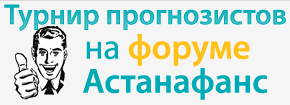Polemica: Race Radios and the Tour de France — PodiumCafe.com
-
- Views: 10 905.
Polemica: Race Radios and the Tour de France
The debate over the use of radios in cycling has reignited in France this week. Daniel Bilalian of France Télévisions wants to put an end to the use of race radios, beginning with this year's Tour de France. Bilalian places race radios on the "same level as doping," as something that is destroying cycling. "The ear pieces transform the riders into automatons," he says, and they kill the spectacle and unpredictability of the racing. Bilalian says he hates to see riders stopped on the road, directed by their team management to hold back or to wait. For instance, Bilalian would like to have seen Andy Schleck ride all out on the Alpe d'Huez, and blames the voice of Riis in his ear for his passive ride during last year's Tour de France. "The renewal of cycling depends on the fight against doping, and I place the disappearance of the ear piece between rider and Directeurs Sportif on the same plain," Bilalian told L'Équipe.

The use of radio communications between riders on the course and the team car following behind dates from the early 1990s, when the American team Motorola introduced radios to the peloton. Advocates of their use point to their importance for rider safety. A directeur sportif can call out road hazards from the car to alert riders. Also, in the event of a mechanical or a flat, riders can quickly call for assistance and such accidents de la course have less influence over the final results. For Vincent Lavenu, directeur sportif of AG2R-La Mondiale, radios are essential. "This is true technical progress, an essential, precise and rapid tool for race tactics and rider safety," he explained. Opponents of banning race radios emphasize the role they play in rider safety.
Marc Madiot, directeur sportif for Français des Jeux, is sympathetic to the argument about rider safety. As a compromise, Madiot suggests a single frequency "rider radio" that would broadcast hazards and which would allow riders to ask for mechanical or other assistance. He would also like to see race radio report the composition of breakaways after the gap reaches at least 40 seconds rather than the current 10 seconds.
Otherwise, though, Madiot is firmly in the no radio camp. In his view, the use of radios penalizes a smart rider like Philippe Gilbert, who can read the race and make his own decisions. As Madiot recounts, Gilbert won Omloop Het Volk in 2008 without the help of his directeur sportif. At the time of his winning move, Gilbert rode out of range and Madiot could not communicate with him by radio. The DS admits that he would likely have told Gilbert to wait, rather than attack when he did. Said Madiot, "He would maybe have been deprived of the victory." "With radios, the riders have become sheep," Madiot concludes. He would like to see cycling experiment with banning radios during some races this season, then make a decision next winter.
Christian Prudhomme of the ASO has confirmed that he is intrigued by the idea, especially if the change meant less predictable racing. "The earpiece padlocks the course," said the Tour director. He believes, "It is necessary to reintroduce challenges and elements of uncertainty." Eddy Merckx shares much the same view. Suppressing the radio will "give back the momentum to the races and spontaneity to the riders. But if I say that I fear that everyone will say that I am looking for a return to the time of the Romans," said the Belgian, who won 525 victories in his career, without ever wearing an earpiece. The UCI already bans the use of race radios in amateur and U23 races. But no precedent exists for banning radios at a specific race, as Balalian and others propose for the 2009 Tour de France. Prudhomme has said that he will discuss the matter with the UCI.
The Tour de France has always had an ambiguous relationship with technology. In the early years of the Tour, the bicycle represented technological progress. To some degree, it still does, as each year's Tour de France showcases the best shiney carbony bits available. Scientific training also connects the Tour to technological change. But the Tour also has a deep mythology of heroism and suffering. Little wonder that "robot" or "extraterrestrial" are epithets in the vocabulary of the Tour de France. The central myth of the Tour is human endurance, an endurance tested and tempered by the extreme difficulties of the course. In this context, for example, Henri Desgranges refused to allow riders to use derailleurs long after recreational cyclists could purchase them.
The debate over radios fits squarely in this long-running collision between the contradictory meaning assigned to the lengthy bike race around France held every July. How much should technology aid the riders in their quest to wear the Yellow Jersey? Does technology rob them of their humanity, turning them into robots or sheep? Or, is it possible to be modern but also heroic?
All quotes from today's print edition of L'Équipe. Other assorted blabbing mine. Don't blame L'Équipe.
-
Related Posts
-
-- enable recent posts plugin --
-
Comments (1)
-
Leave a Reply



Earpieces banned on two TdF stages:
#10 Limoges — Issoudun (July 14)
#13 Vittel — Colmar (17 July)
http://tbik.org/bL3ea